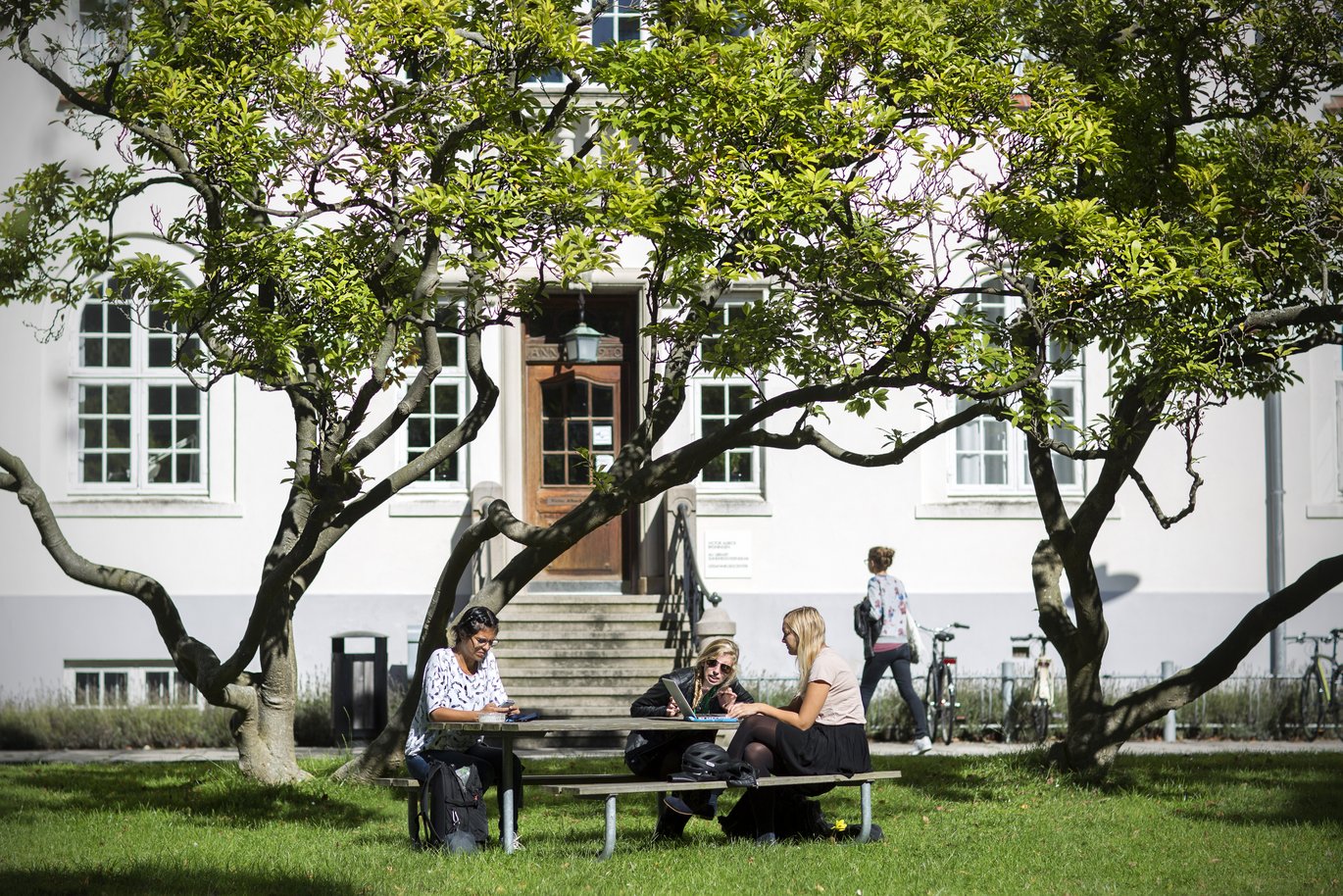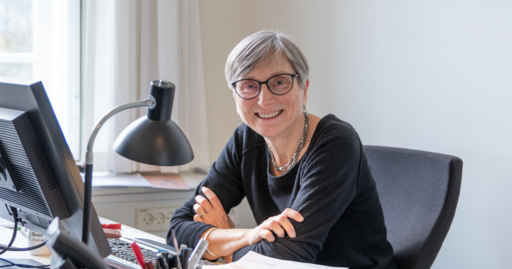New Year’s Letter: 2023 promises both challenges and exciting developments in the area of education
Relocation, party code, examinations, internationalisation and Covid: 2022 was a busy year with tasks in the area of education that were both old and new, inspiring and challenging. Now 2023 is underway, with the prospect of yet another exciting year in the educational field.


It is January, and we have just made a start on a brand new year. In a few weeks’ time, the winter intake of medical students will land on campus, and from the very first day, they’ll be introduced to an inspiring student life. Skilled teaching staff, tutors, and fellow students are ready to welcome them and help to ensure they get off to a good start in their studies. I hope the new students will be glad that they chose AU.
2022 was very much a year of change and relocation. The government’s demand to relocate or shut down study places also impacted Health, where the Master’s programme in nursing in Emdrup unfortunately had to close. Luckily, in the course of the autumn, it proved possible to conclude an agreement which meant that the programme at Emdrup could continue as before, but now under the auspices of Roskilde University. Although we would naturally have liked to keep our study programme, I am pleased that we have managed to create security for the staff and future students through the new agreement.
At the Department of Dentistry and Oral Health, too, we will have to say goodbye to some programmes this year. In August, the two vocational training programmes for dental surgery assistants and dental technicians will close. This may seem paradoxical in the light of the shortage of dental assistants, but for a number of years the number of students has been steadily declining, and is now so low that the programmes can no longer function at the university. The students and staff have been taken care of, and the programmes can still be accessed elsewhere in the country.
Almost back to normal
2022 began a bit like both 2020 and 2021 ended – in the shadow of the pandemic. However, with the help of sanitiser, social distancing and guidelines, it proved possible for us to maintain our teaching and hold our examinations without major outbreaks of infection. Fortunately, we are now in a completely different situation, with no shut-down in December and, for the time being, no prospect of Covid-restricted online teaching on the horizon. If 2022 was almost back to normal, then I hope that we can look forward to a 2023 without pandemic measures and limitations.
And now that we can reduce the Covid restrictions, our social events have also returned – for staff and students alike. In the spring of 2022, under the heading ‘Safety, Inclusion and Openness’, the student associations at Health drew up a code of conduct for the associations’ on-campus events. This code is a reminder that there must room for all, including at social gatherings. The collaboration with the associations was positive and inspiring, and I look forward to continuing the good and open dialogue with the students this year – not just in relation to festive activities, but also in relation to how we can work together to create good programmes and ensure a good studying and working life on campus.
Challenges and developments ahead
The coming twelve months will offer exciting partnerships, opportunities and development in the area of education. The education report for 2022 has just arrived and shows that in general, we have some really good and well-functioning degree programmes at Health – but there are still some focus areas where we would like to be even better. Amongst other things, we need to work more with research integration in teaching. Many of Health’s skilled teaching staff are already good at integrating the latest research into their teaching and encouraging the students to adopt a critical approach to the source material and ask good questions. But our ambition is to be even better. Here in January, I will be concluding a round tour of the boards of studies, and in the course of the year we will follow this up with workshops and new initiatives to help strengthen research integration. At the same time, we are now beginning our efforts to better prepare our students for their digital future.
‘Digital health professionals’ must be able to relate to new technologies – including many that we have not yet seen. They must be able to understand the use of the new digital technologies and have the capacity to analyse and choose between the various options. There is a large and exciting task ahead to equip both the students and the teaching staff for a digital world. A start is the so-called coding camps, which are being conducted under the auspices of CLIN and PH in collaboration with Tech and BSS.
Both internationalisation and accreditation will also be of importance this year. Since 2020, Aarhus University has been part of the Circle U. alliance, in which nine European universities are collaborating on research and teaching. The ambition is for half of the university’s students to acquire some form of international experience during their studies. We are already well underway in this, and I’m looking forward to seeing some of the new initiatives during 2023. We have also started the process of accreditation, under which the Danish Accreditation Institution will assess our quality assurance work on the basis of three criteria: I: Systematic and involving quality-assurance work, II: Knowledge base, and III: Level, content and organisation. This is always an exciting task that gives us both cause for pride and food for thought.
Last but not least, with the formation of the new government it is also clear that a new university reform is in the pipeline. Here it is the Master’s degree programmes that the government would like to shorten. The final reform proposal is not yet in place, so we are awaiting the spring negotiations with the government, where stakeholders will be invited to state their opinion.
All in all, 2023 looks like being an exciting year in many ways. We can look forward to a MatchPoints conference on Global Health Challenges and Solutions, in which both teaching staff, researchers and students from Health will be participating. I am also looking forward to working together across the university on joint elective subjects, and we will be welcoming new heads of degree programmes and saying farewell to others. I am also pleased that the students have once again honoured the teaching staff of the year – many congratulations to those selected.
Thank you very much for your good collaboration across the faculty in 2022, and I look forward to continuing our excellent partnership in 2023.
Lise Wogensen Bach
Vice-Dean for Education